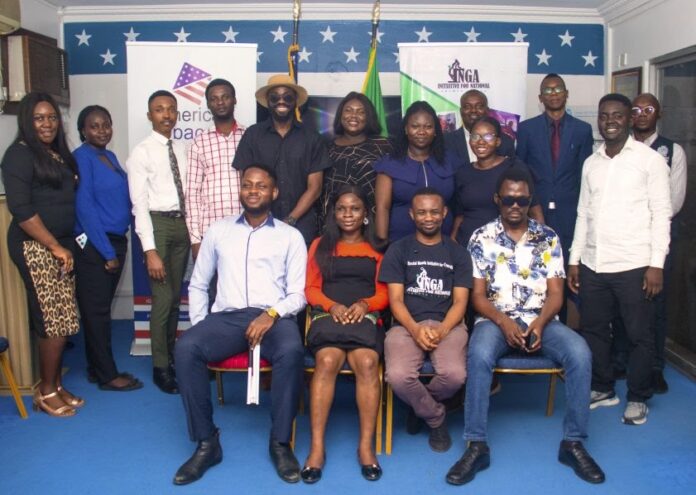In Nigeria, a staggering 29 million people, constituting 18.3 per cent of the population, live with disabilities. Visual impairment, hearing impairment, physical impairment, intellectual impairment, and communication impairment are among the most prevalent disabilities. Of these, approximately 10.4 per cent of working-age Nigerians (aged 18-65) grapple with disabilities that significantly hinder their ability to find employment, resulting in a total of 23.8 million people.
Despite the enactment of the Discrimination Against Persons With Disabilities (PWDs) Prohibition Act in 2018, mandating public organizations to allocate at least five per cent of their workforce to persons with disabilities, opportunities for this demographic group remain severely limited. Policy efforts to bridge the employment gap in both the public and private sectors have proven insufficient, leaving employment rates for people with disabilities trailing far behind those without disabilities.
In a parallel context, Malawi, according to the 2018 Population and Housing Census, has 1,734,250 individuals with disabilities, accounting for about 11.6 per cent of the total population aged above five years, with 134,636 of them being persons with albinism.
In response to this dire situation, the Special Needs Initiative for Growth (SNIG) Nigeria, in collaboration with Salama Africa Malawi, has launched a groundbreaking disability advocacy project: “Breaking Boundaries, Empowering Abilities into the Nigerian and Malawi Workforce.”
This innovative project includes the premiere of a short documentary film and an interactive workshop event involving employers. Its core mission is to inspire greater compliance with existing disability rights legislation in both Nigeria and Malawi, with the ultimate aim of transforming organizational attitudes from mere legislative compliance to the creation of genuinely inclusive workspaces that break down the barriers limiting the employment of persons with disabilities.
On October 25, 2023, the project officially commenced simultaneously at American Corner, Lagos, Nigeria, and the Salama Africa Building in Malawi. The event featured opening remarks from Racheal Inegbedion, the Founding Executive Director of the Special Needs Initiative for Growth, and Toussaint Farini, the Founder of Salama Africa. They underscored the pressing need to promote the inclusion of persons with disabilities in the workforce, drawing inspiration from the exemplary dedication of the late Judy Heumann, a renowned disability rights activist who played a leading role in the global disability movement for 40 years.
Amanda Roach, the Deputy Public Officer at the U.S. Consulate in Lagos, delivered a keynote speech that celebrated Judy Heumann’s legacy and commended both Nigeria and Malawi for organizing this project as a means to dismantle employment barriers for persons with disabilities.
During the event, Omowonuola Akintunde, who serves as the financial director and holds a position on the board of trustees for SNIG, provided insights into the history of the Special Needs Initiative For Growth. She outlined how SNIG’s vision to promote employment equity has positively influenced the lives of countless youths with disabilities across Africa.
The workshop event saw the participation of various organizations representing employers of labour, including Reddington Hospital, Abiola Bonuola Communications, Worden HCD, CreditWave Finance Limited, and Renaissance Foundation for Peacebuilders (REFOP). The documentary showcased interviews with 10 individuals with disabilities from Nigeria and Malawi, sharing their experiences related to education, employment, self-entrepreneurship, challenges accessing social welfare services, and barriers to employment, sparking a dynamic session of dialogue, enlightenment, commitments to implementation, and the exchange of ideas for overcoming the challenges.
Key interactive elements of the workshop included a “works of inclusion” presentation on employment ethics and employability preparedness for employers, led by Kikelomo Olatunde, the project director for SNIG, and Godswill Ekwughaonu, a Human Resource Specialist. The event also featured a networking session, career pitch, and speed dating, enabling the documentary’s protagonists to engage directly with employers on a one-on-one basis. Some of the protagonists from Nigeria and Malawi included Abiodun Oyeniran, Adewale Omojowolo, Safari Strong, Grace Adebambo, RUVUBIKA PIERRE, Daniel Isaiah Olamide, Adidja Asumani, Victor Uchechukwu Odogwu, Oluwakemi Odusanya, Jeanne D’Arc, Jasmone Kilongi, and Mojisola Alabi.
Racheal Inegbedion, SNIG’s Founding Executive Director, emphasized that the 2023 short documentary, following the one in 2022, aims to raise awareness across Africa. The partnership with Salama Africa seeks to address employment barriers in Nigeria and the Dzaleka Refugee Camp, promoting inclusive workspaces. The project’s goal is to encourage Nigerian and Malawian hiring managers and employers to identify challenges in hiring persons with disabilities and find solutions that align with their national legislation, which mandates employing people with disabilities. This effort goes beyond mere legal compliance to address broader inequalities in our ever-changing world.
Both Toussaint Farini, the founder of Salama Africa, and Racheal Inegbedion, the founding executive director of the Special Needs Initiative For Growth, are recipients of the 2023 Leveraging Innovations in New Communities (LINC) Grants of the Mandela Washington Fellowship, funded by the U.S. Department of State and implemented by the International Research and Exchanges Board. The Mandela Washington Fellowship for Young African Leaders is a flagship program of the Young African Leaders Initiative, recognizing accomplished leaders between the ages of 25 and 35 who have a track record of promoting innovation and positive impact in their communities and countries.
Guardian


